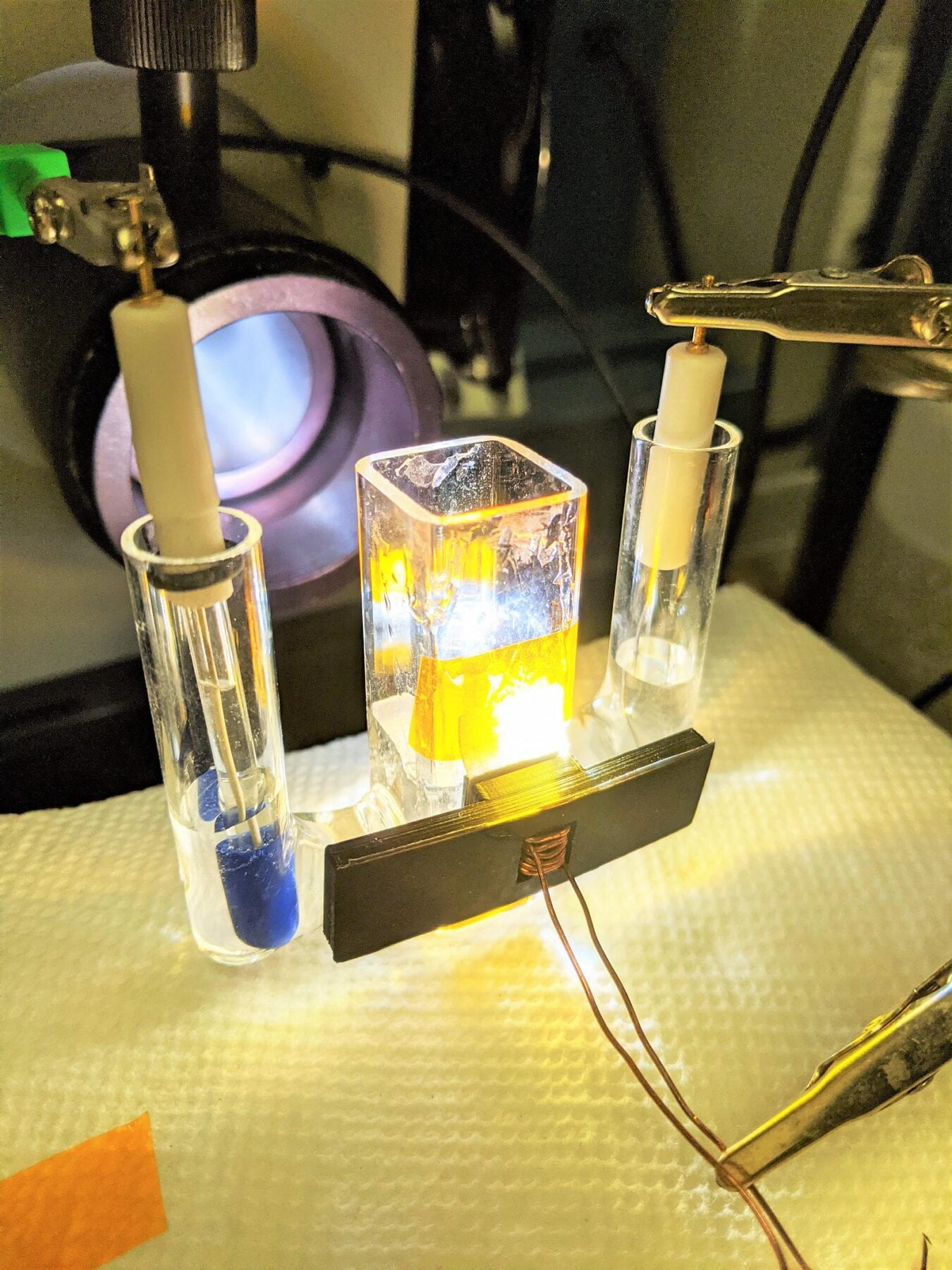
Russian chemists obtained new molecules of the indolyl- and pyrrolylazine series
CREDIT: UrFU / Anastasia Kurshpel
Scientists obtained substances that provide a breakthrough in the treatment of neurodegenerative pathologies
Russian scientists have synthesized chemical compounds that can stop the degeneration of neurons in Alzheimer’s, Parkinson’s, and other severe brain pathologies. These substances can provide a breakthrough in the treatment of neurodegenerative pathologies. New molecules of pyrrolyl- and indolylazine classes activate intracellular mechanisms to combat one of the main causes of “aged” brain diseases – an excess of so-called amyloid structures that accumulate in the human brain with age. The essence of the study was published in the European Journal of Medicinal Chemistry. Experts from the Institute of Cytology of the Russian Academy of Sciences, the Institute of Organic Synthesis of the Ural Branch of the Russian Academy of Sciences, and the Ural Federal University (UrFU) took part in the study.
“Our compounds activate the synthesis of specific heat shock proteins and cause their accumulation in the cell,” said research co-author, professor of the Department of Organic and Biomolecular Chemistry at UrFU Irina Utepova. “Proteins of this type make it possible to protect neuronal tissue from an excess of toxic amyloids and to protect cells from various types of stress, including proteotoxic stress characteristic of neurodegenerative diseases.”
Important advantages of compounds from the series of pyrrolyl- and indolylazine classes are a profitable synthesis technology and low toxicity.
The obtained compounds were tested in cellular models of Alzheimer’s disease and secondary injuries after traumatic brain injury. In both cases, the new substances demonstrated a significant therapeutic effect, increasing the survival of neuronal cells. The most effective compound has been tested in living tissues of rats with secondary injuries after traumatic brain injury.
According to scientists, the use of pyrrolylazine in rehabilitation therapy allowed the animals to avoid the appearance of movement disorders and degeneration of hippocampal neurons. The research team has been continued to study the mechanism of action of new compounds and is preparing for their preclinical testing.
Original Article: Chemists found an effective remedy for “aged” brain diseases
More from: Ural Federal University | Russian Academy of Sciences
The Latest Updates from Bing News & Google News
Go deeper with Bing News on:
Proteotoxic stress
- What Are Your Stress Triggers?
Stressed affects all of us at some point in our lives. While research shows that a little stress can actually be a good thing because it motivate us into action, too much stress can be problematic.
- Common Causes of Stress and How They Impact Your Health
Many facts of everyday life contribute to chronic stress; some, such as money and parenting, are nearly universal sources. The first step toward getting chronic stress under control is to learn ...
- Can Stress Cause Acid Reflux?
Stress may trigger acid reflux as it can make you more sensitive to smaller amounts of acid in the esophagus. Adopting coping mechanisms for stress may help reduce symptoms. Stress and anxiety can ...
- What’s the Connection Between Eczema and Stress?
Stress causes a spike in the hormone cortisol, which may lead to eczema flare-ups. Avoiding stress and other triggers may help reduce flares. Atopic dermatitis, known as eczema, is a chronic ...
- ‘Stress Positions’ Review: It’s Giving Pandemonium
For “Stress Positions,” the writer-director Theda Hammel shows her hand when a character says, in a world-weary voice-over, that the madness we’re about to witness “happened so long ago.” ...
Go deeper with Google Headlines on:
Proteotoxic stress
[google_news title=”” keyword=”proteotoxic stress” num_posts=”5″ blurb_length=”0″ show_thumb=”left”]
Go deeper with Bing News on:
Pyrrolylazine
- Feed has no items.
Go deeper with Google Headlines on:
Pyrrolylazine
[google_news title=”” keyword=”pyrrolylazine” num_posts=”5″ blurb_length=”0″ show_thumb=”left”]











